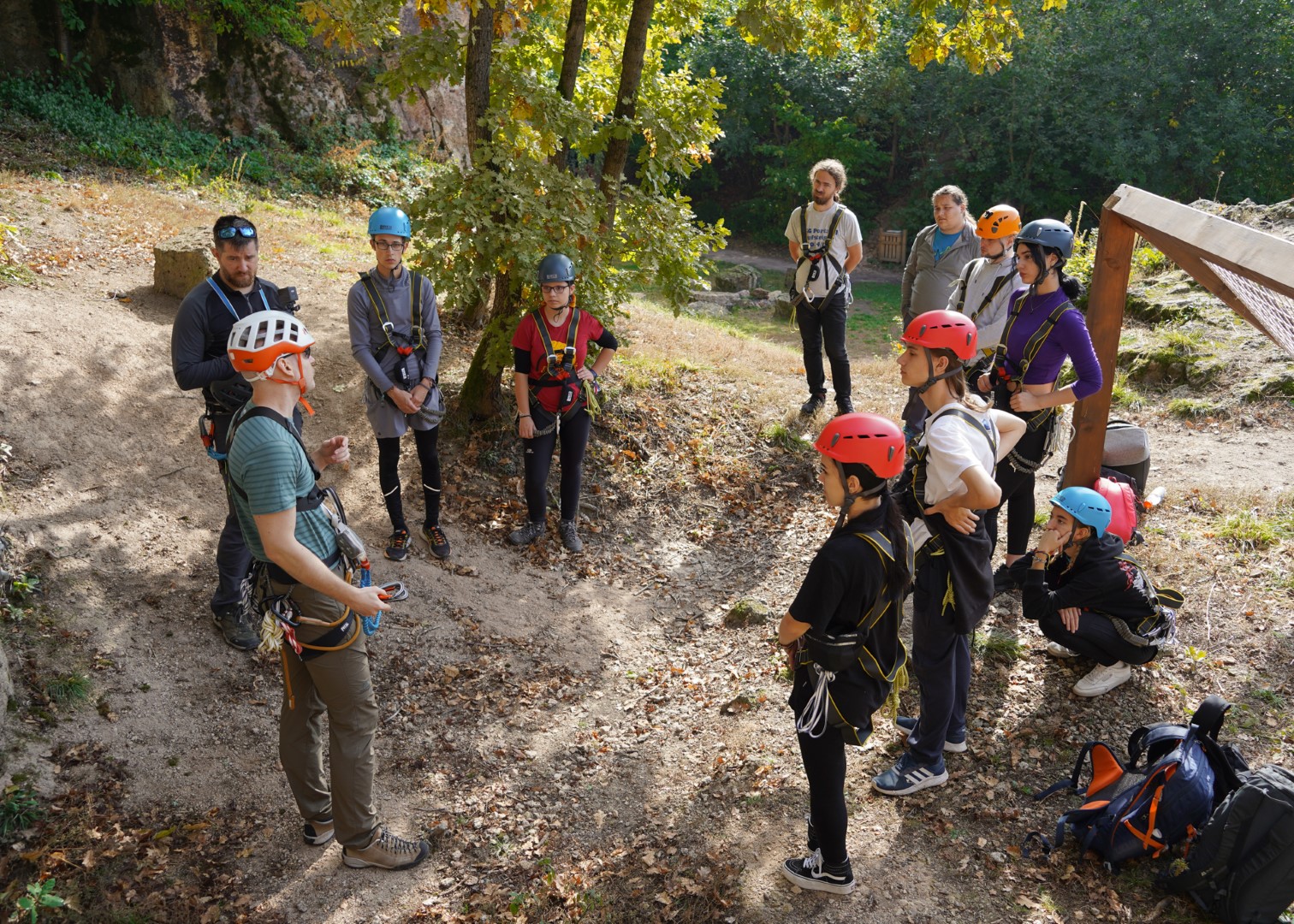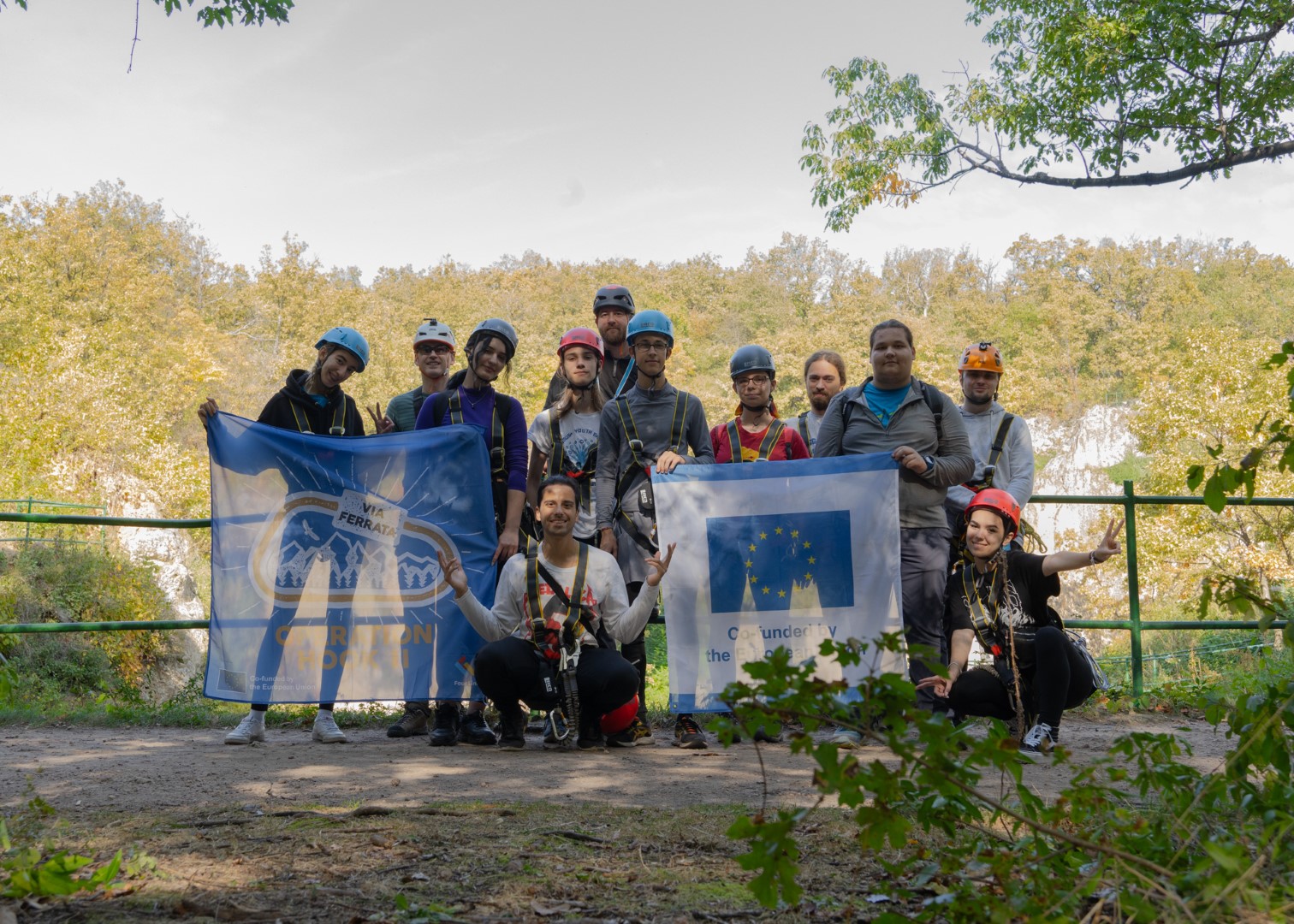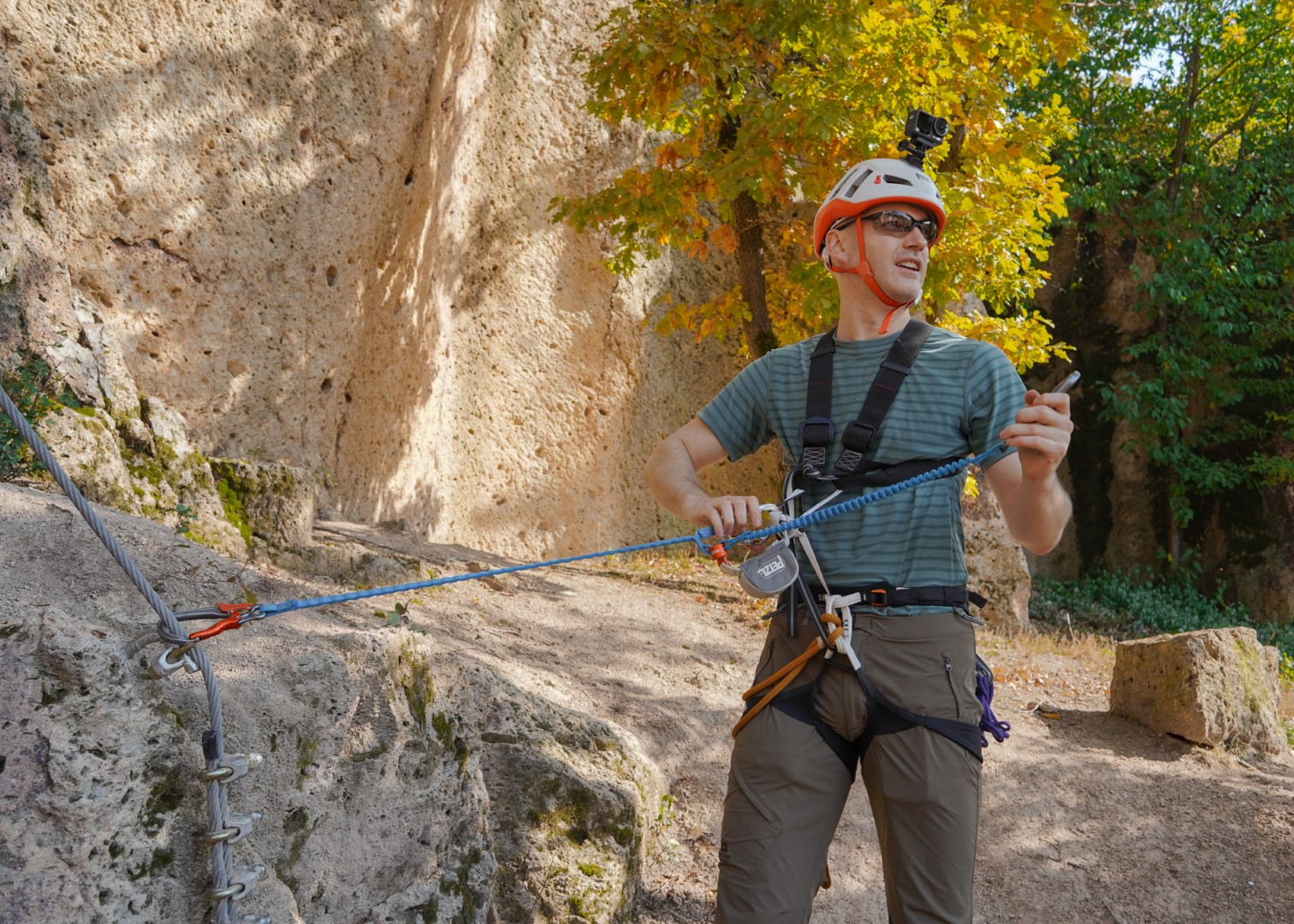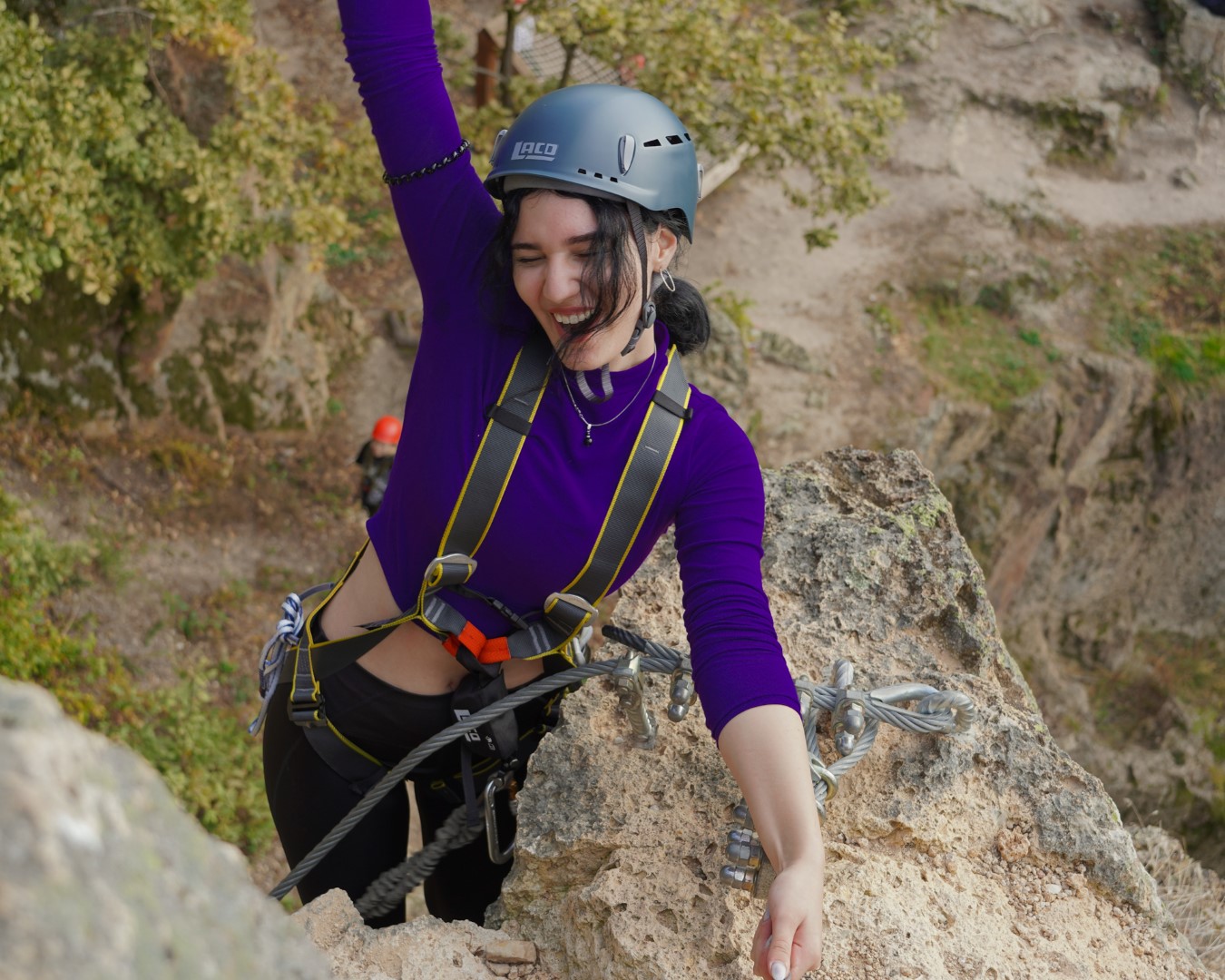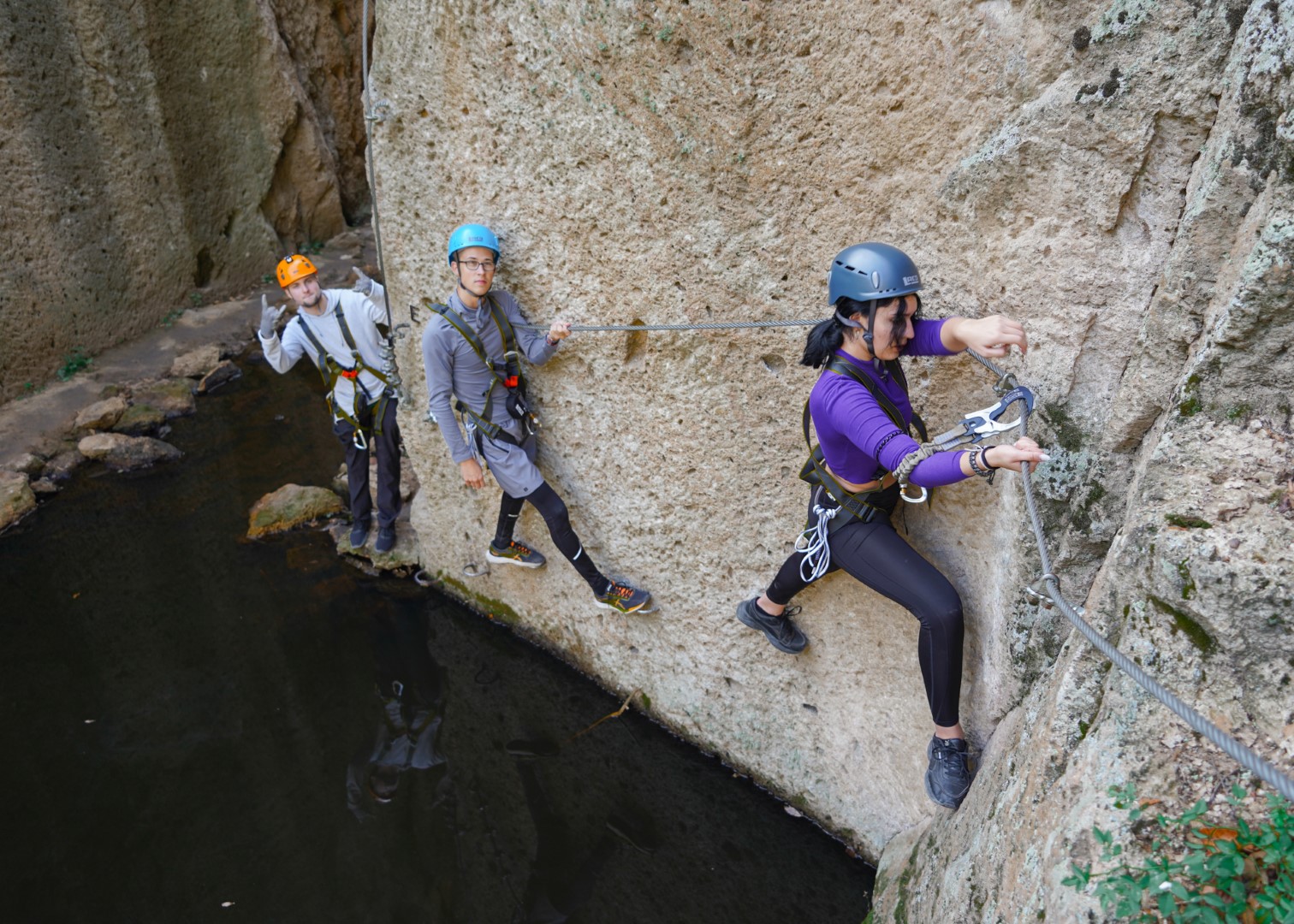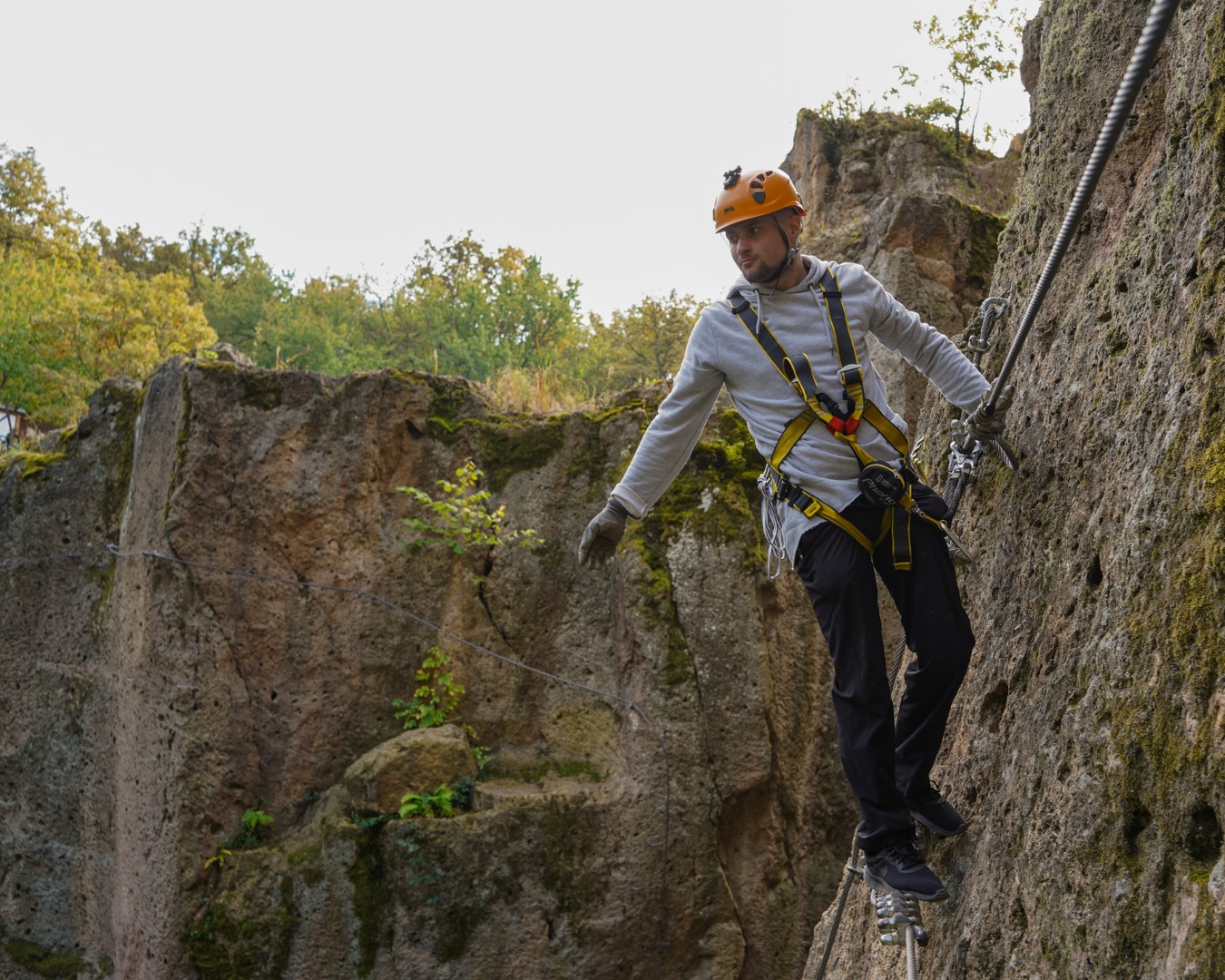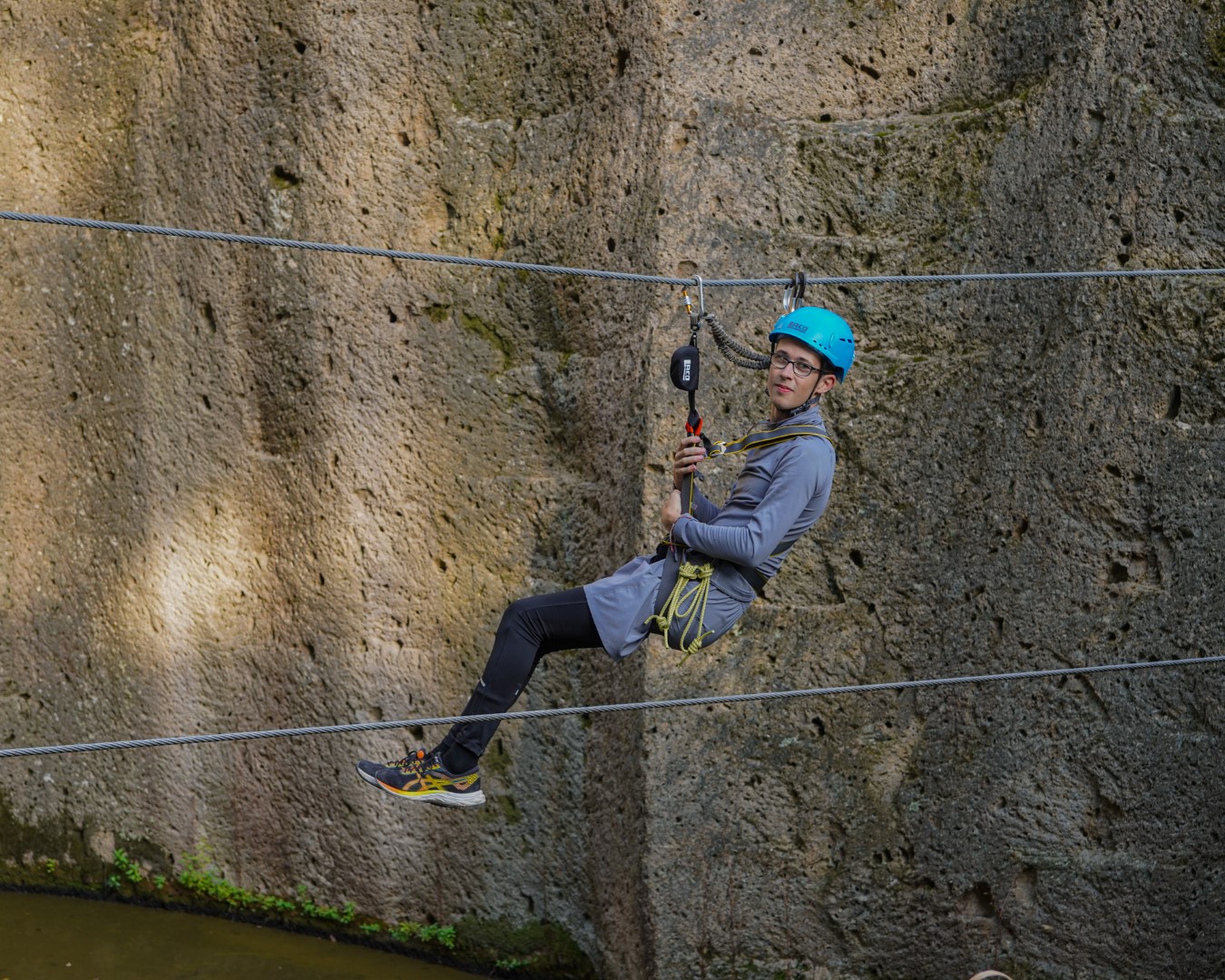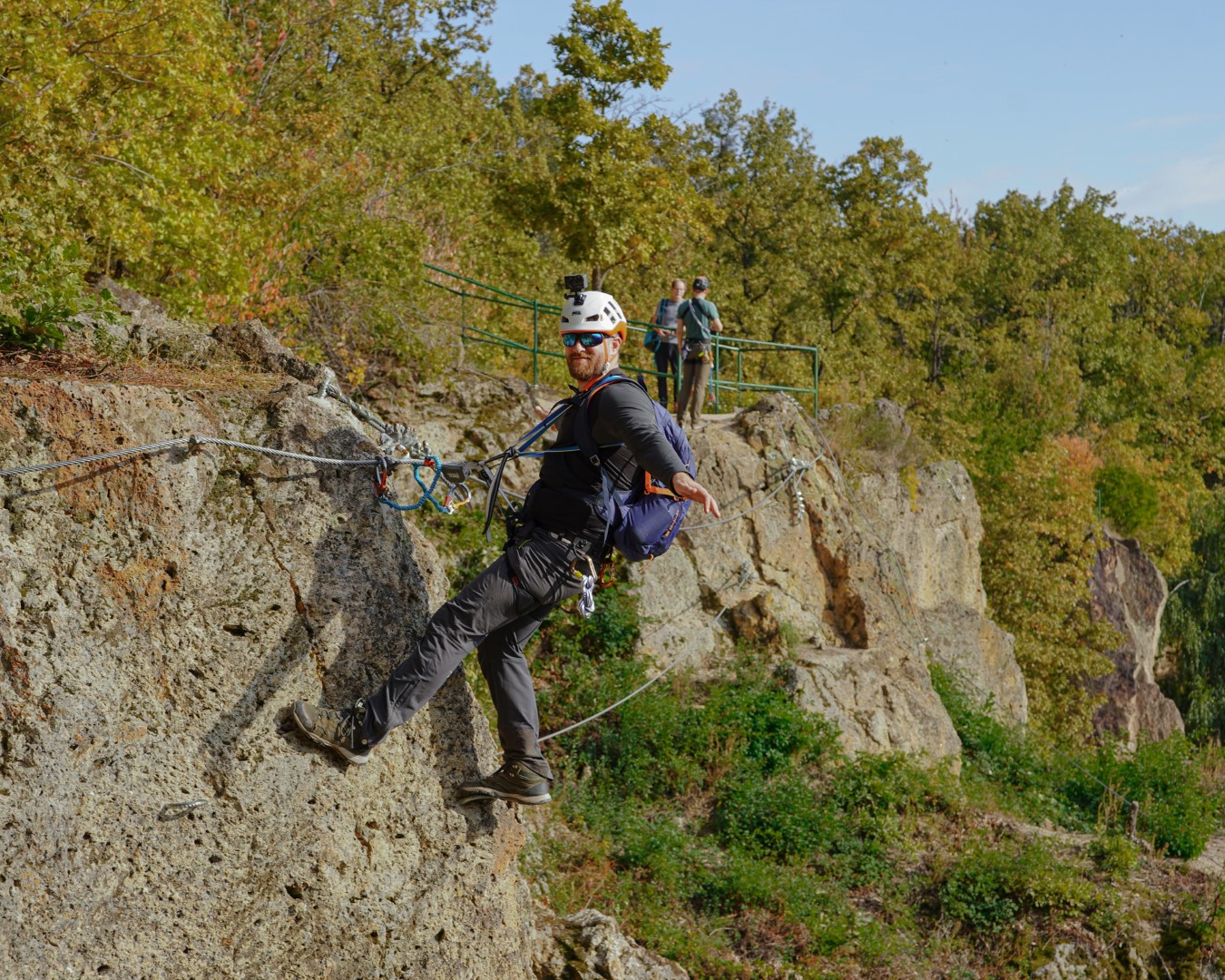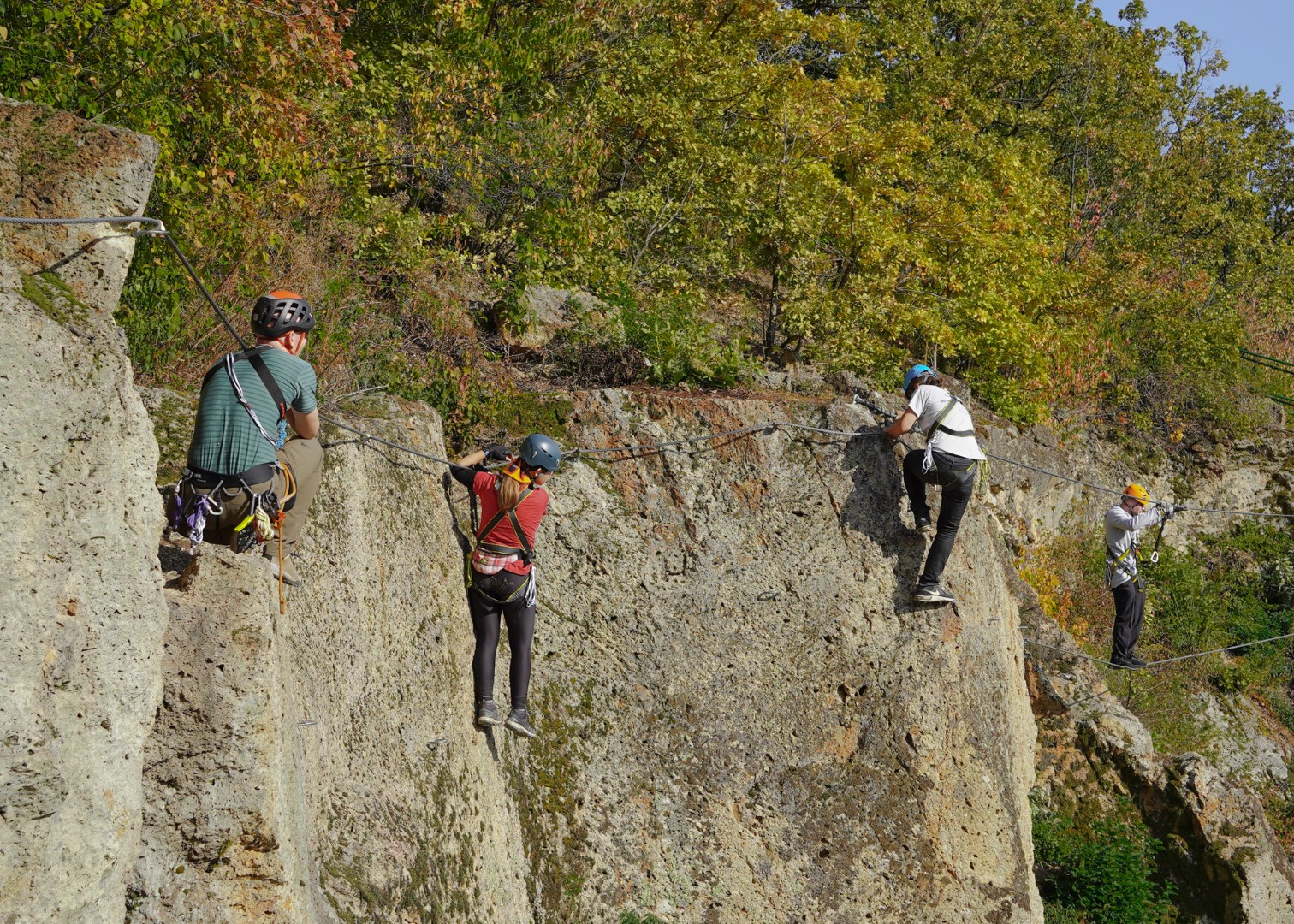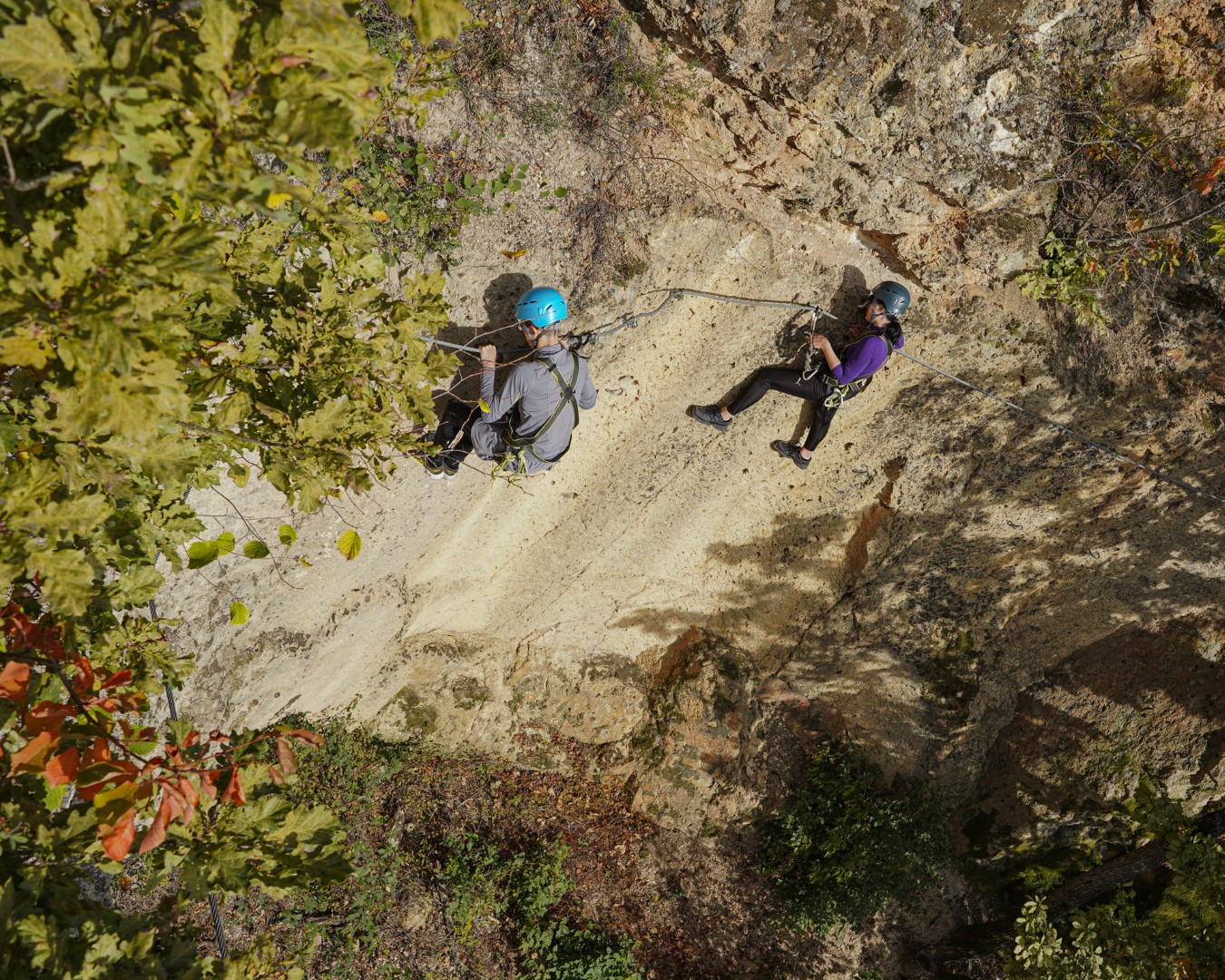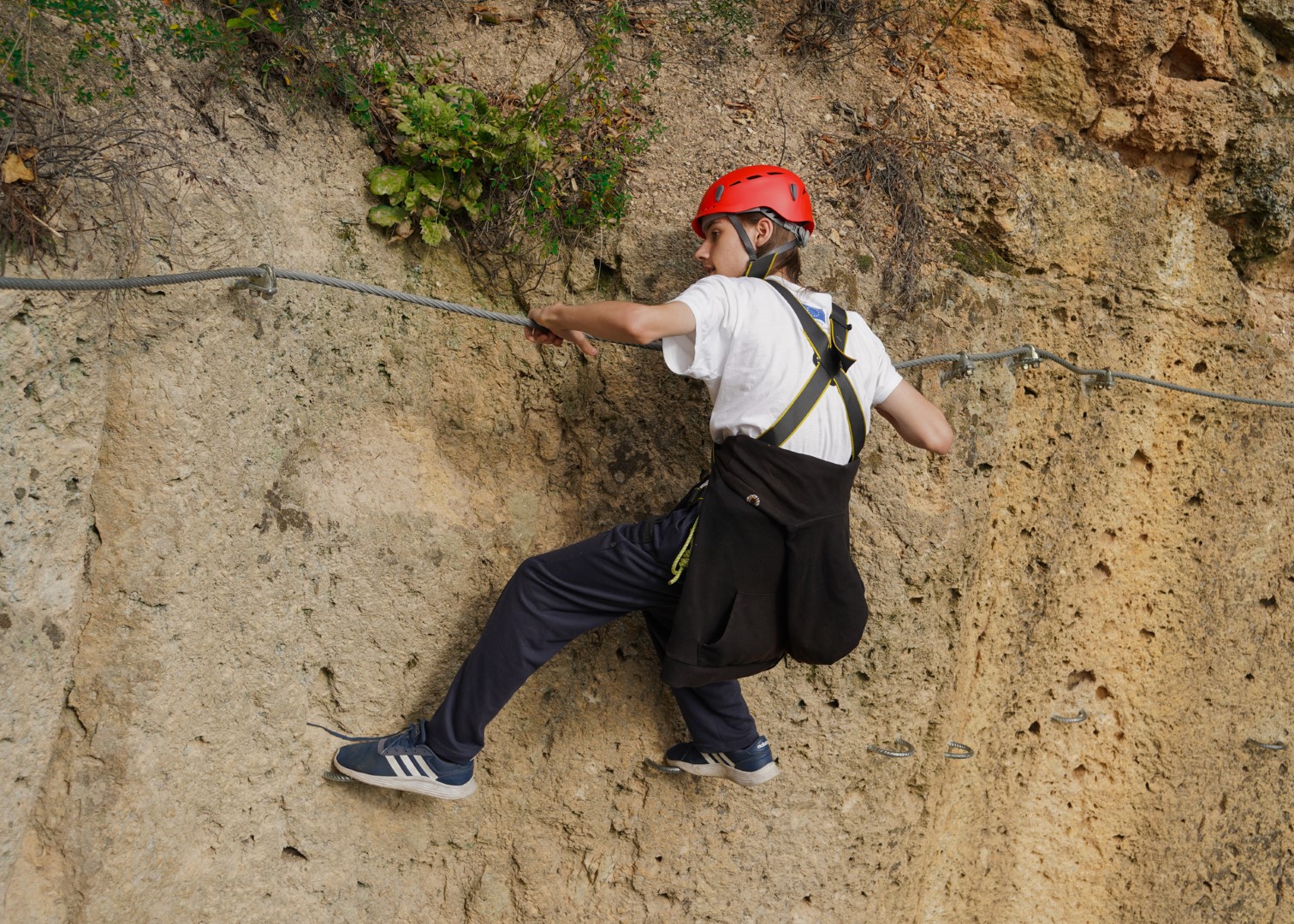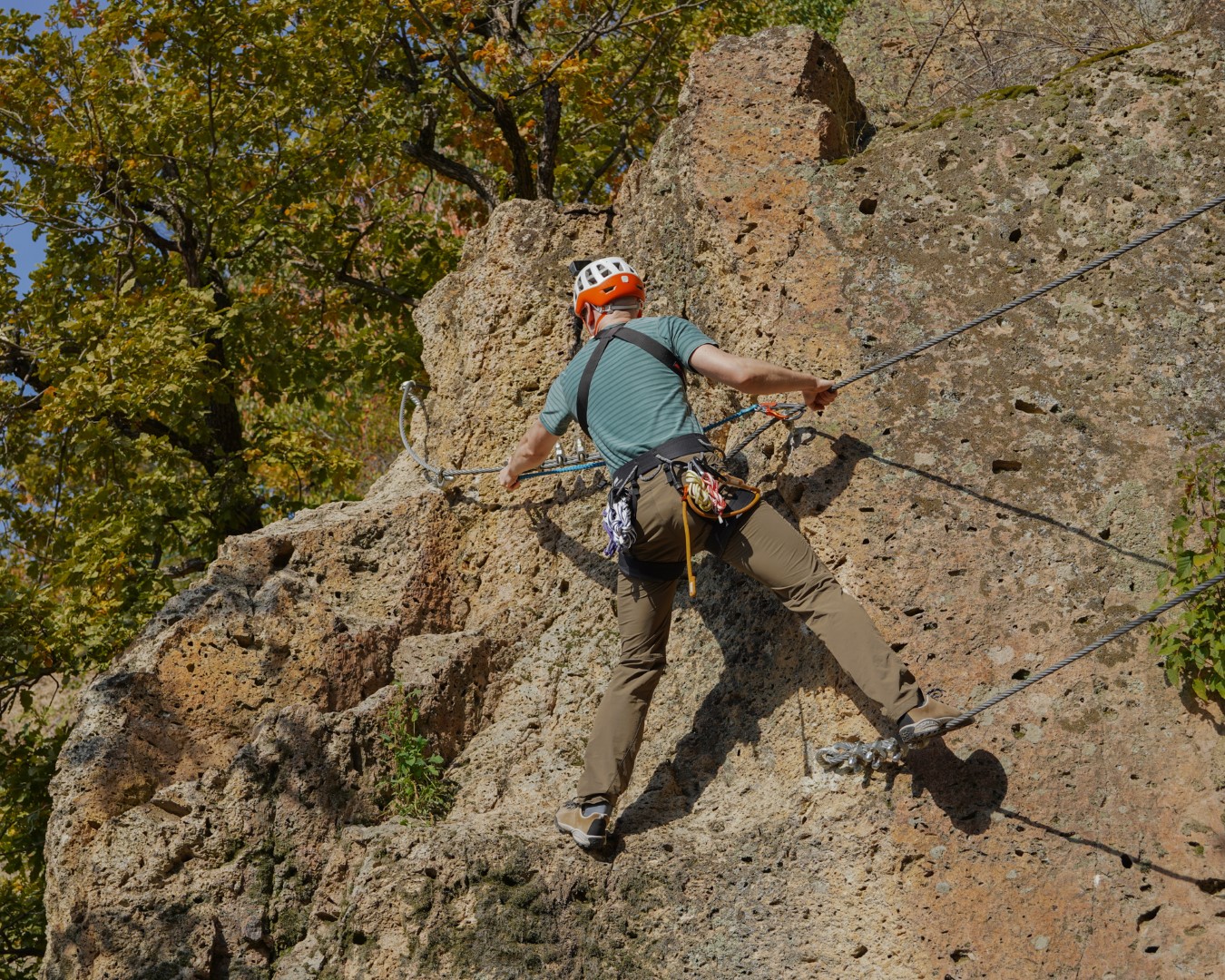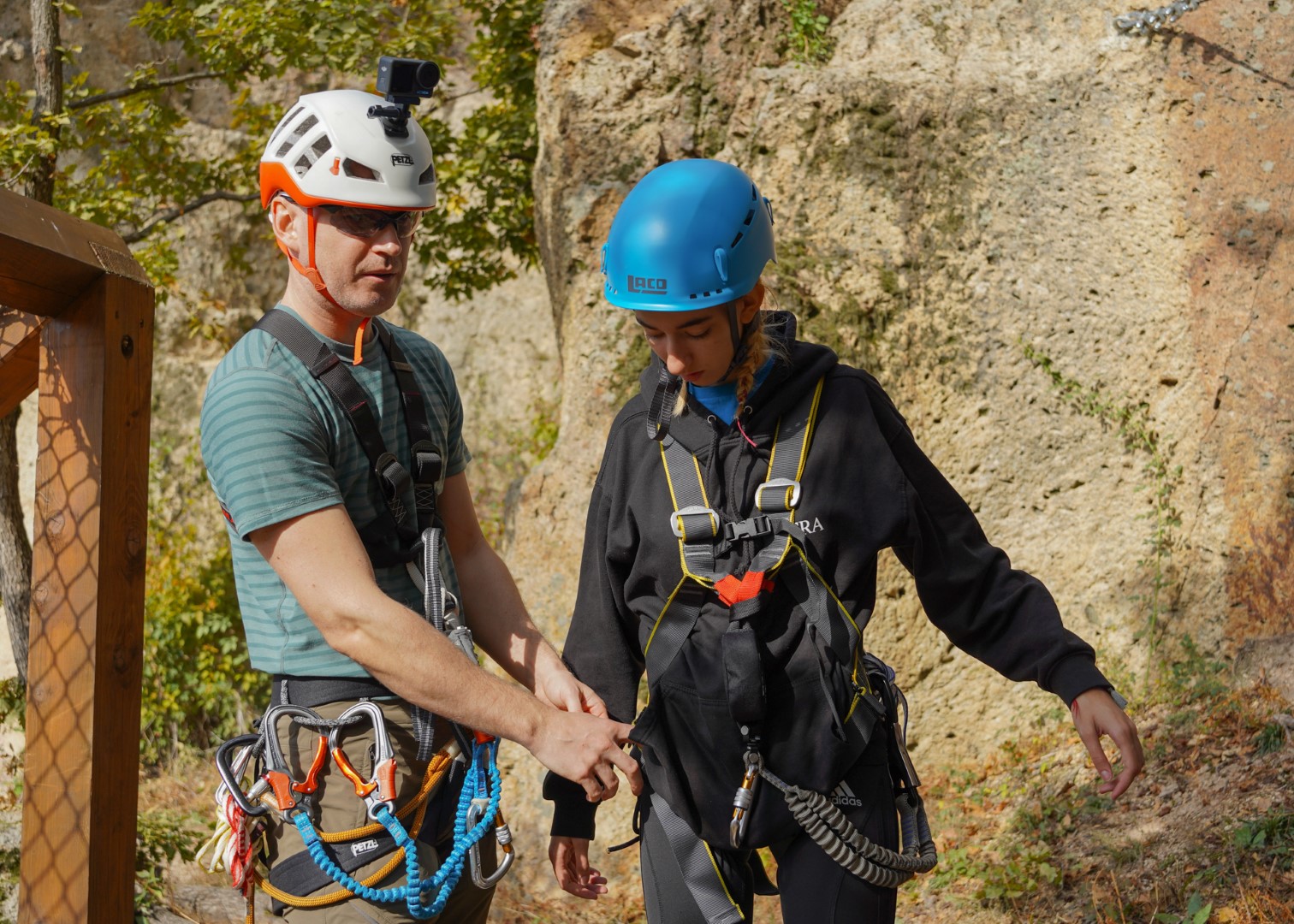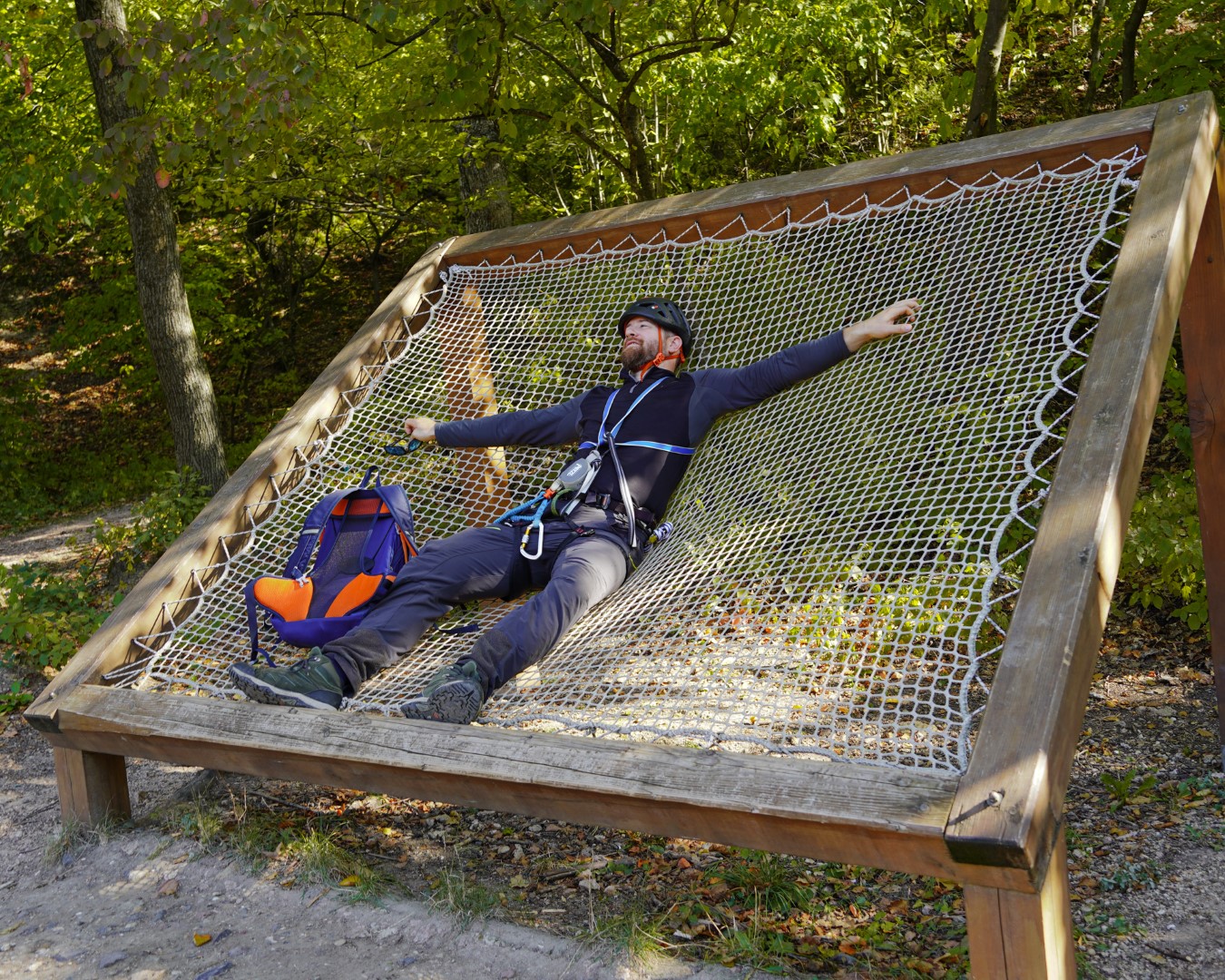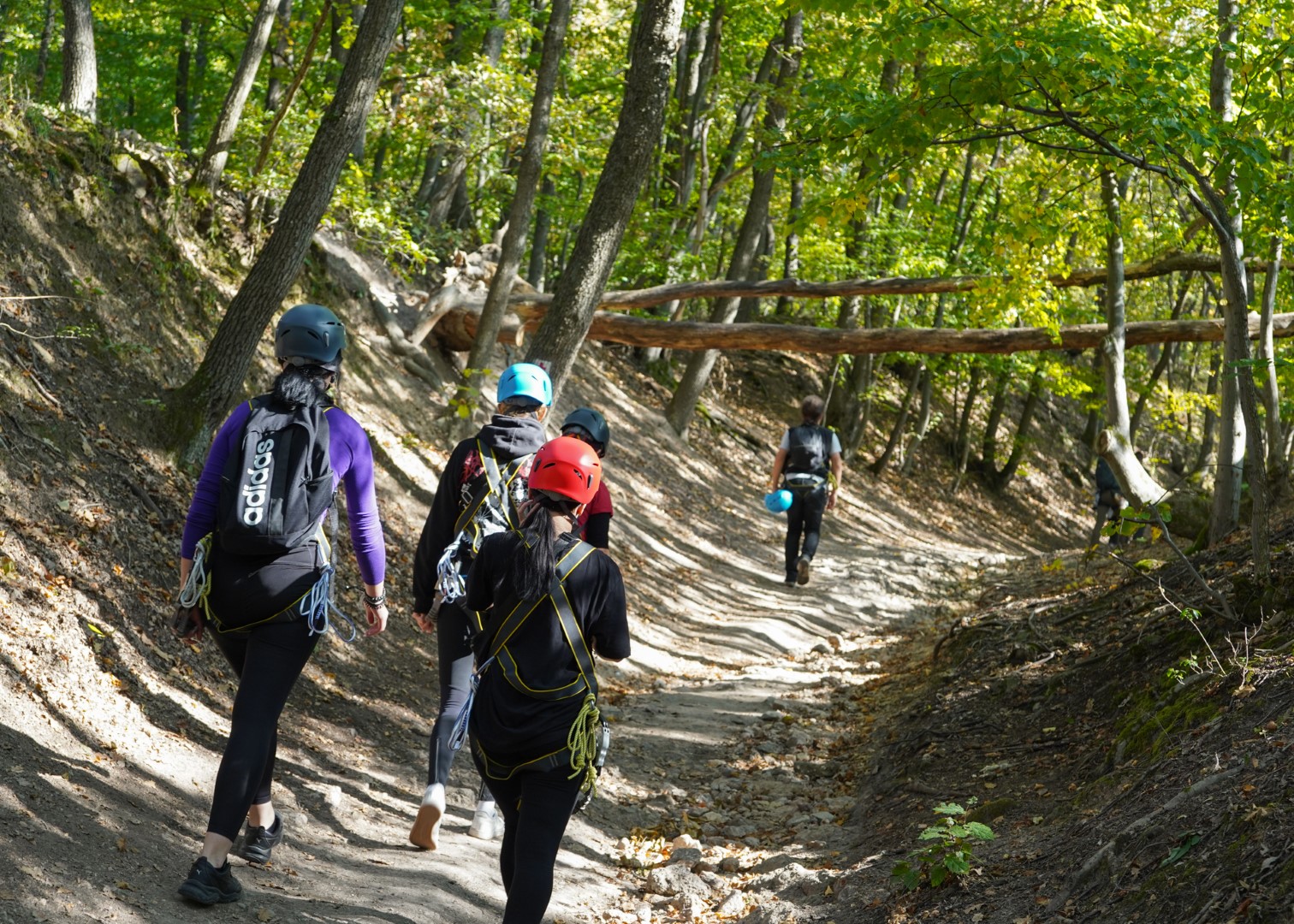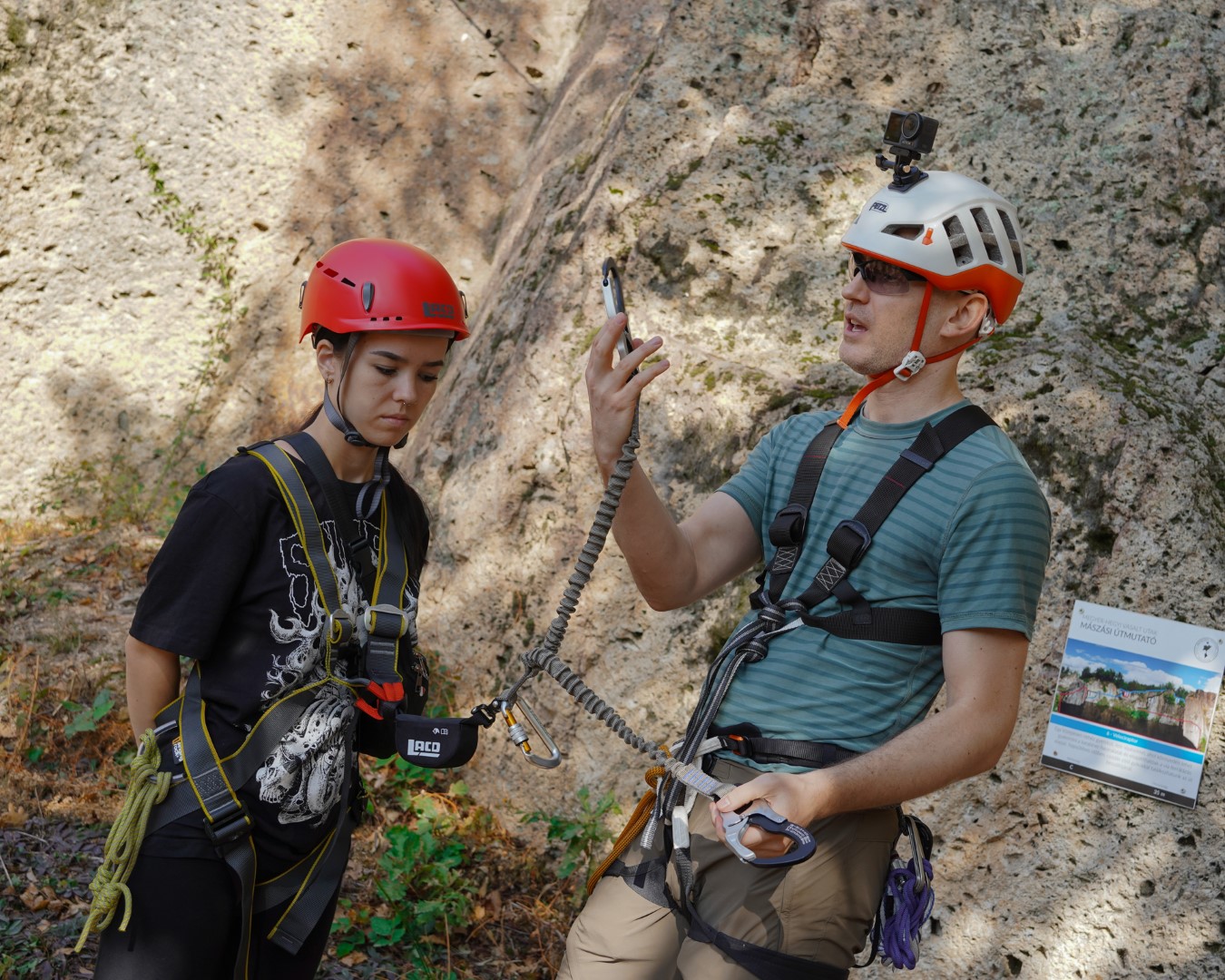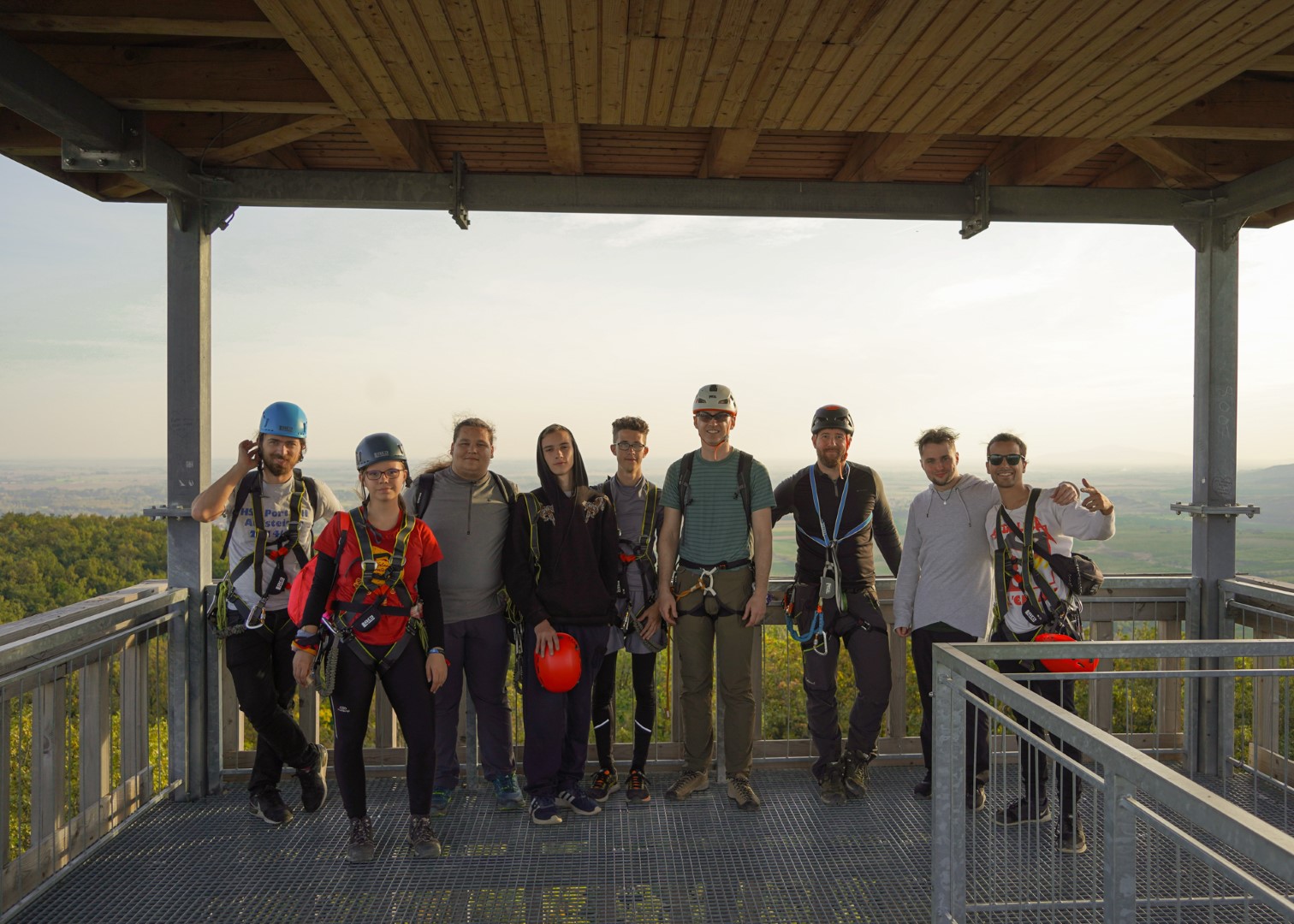Video Recap of our Local Training in Via Ferrata Megyer-hegyi Tengerszem
In the heart of Megyer-Hegyi Tengerszem, Hungary, a group of outdoor enthusiasts geared up for a day of Via Ferrata fun, part of the Operation Hook 2 project.
The weather was sunny, and the place looked like a real-life playground! This Via Ferrata Park has routes for everyone – from first-timers to advanced climbers. And get this – the Ferrata paths are circled by a beautiful lake, adding an extra touch of magic to the whole experience.
Our Ferrata instructor, Attila, played a crucial role in ensuring everyone’s safety. With a focus on equipping participants with essential skills and emergency techniques, he made this adventure not just thrilling but also educational, making everybody feel safe and confident in high altitudes. As the day unfolded, we tackled various Ferrata routes of all shapes and sizes. We were like a bunch of friends on a quest, cheering each other on and sharing that amazing feeling of reaching the top. And when the climbing got tough, a few shaky legs and tired arms just added to the adventure.
The thrill and satisfaction of completing the Via Ferrata left the group eager for more adventures. Following the activity, a leisurely walk around the scenic surroundings allowed participants to soak in the beauty of the landscape. It was a day that felt like a mix of childhood play and high-energy exploration full of camaraderie.
This isn’t just a story; it’s an invitation. Read more about Operation Hook II project and stay tuned to our upcoming Via Ferrata activities in different countries. This project aimed to promote Via Ferrata as a health-enhancing activity and can offer you an inclusive and exhilarating experience, whether you’re a seasoned climber of a beginner. Connect with us and be a part of the adventure.
Photo Gallery
A few more moments from this activity :)

Funded by the European Union. Views and opinions expressed are however those of the author(s) only and do not necessarily reflect those of the European Union or the European Education and Culture Executive Agency (EACEA). Neither the European Union nor EACEA can be held responsible for them.

